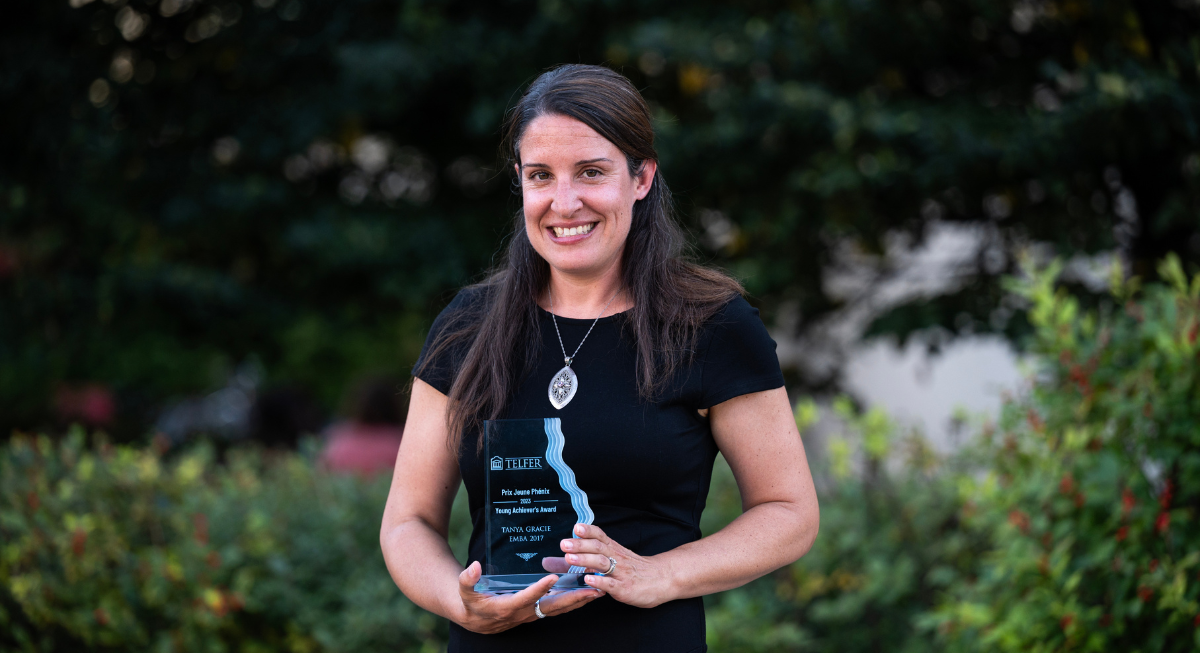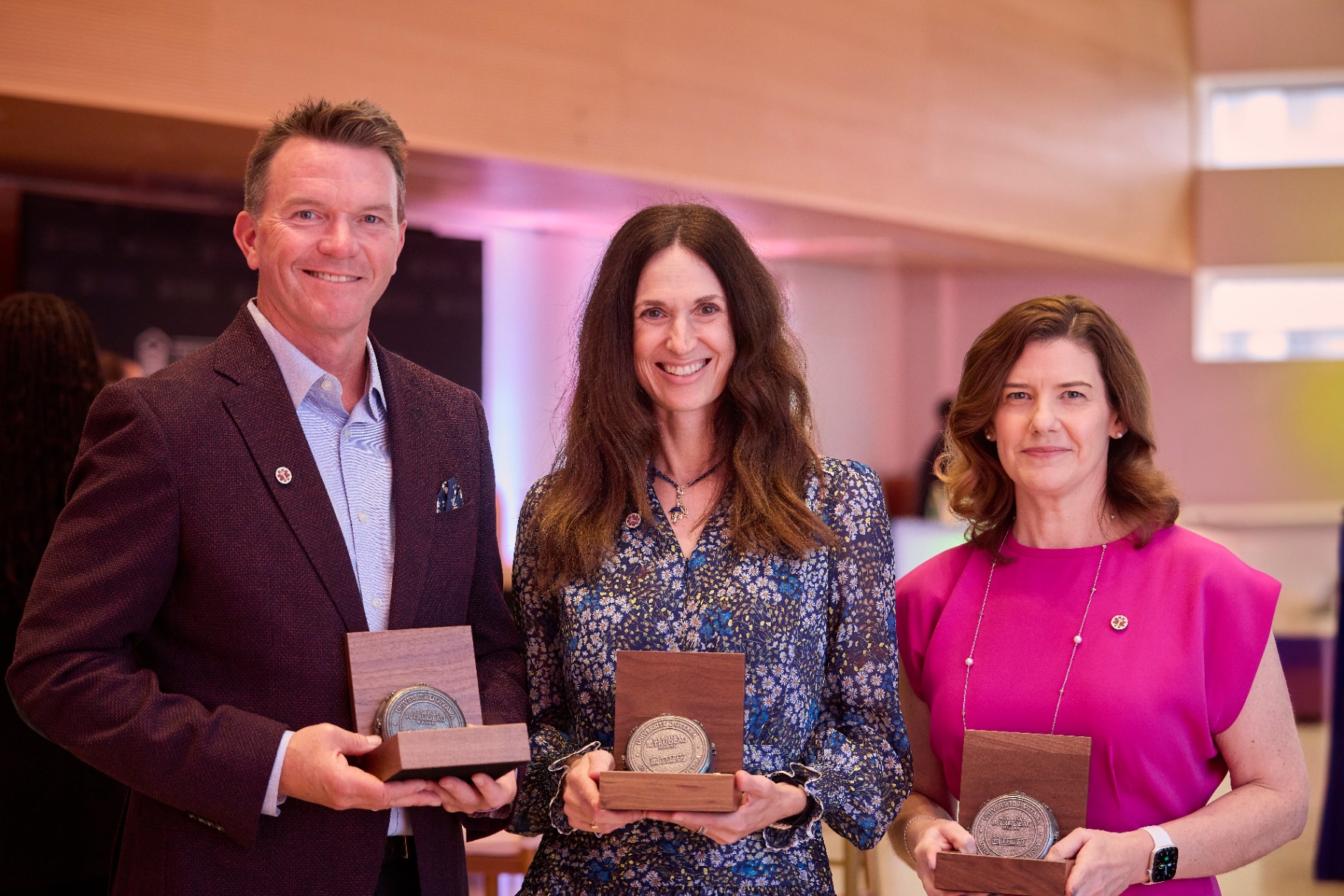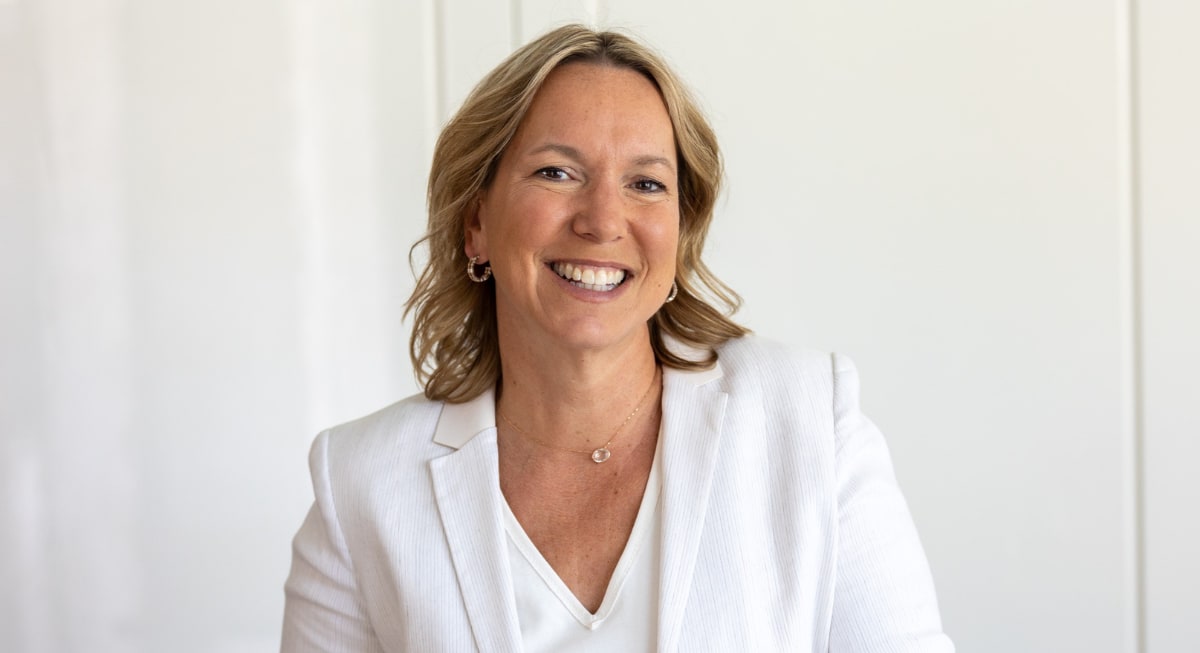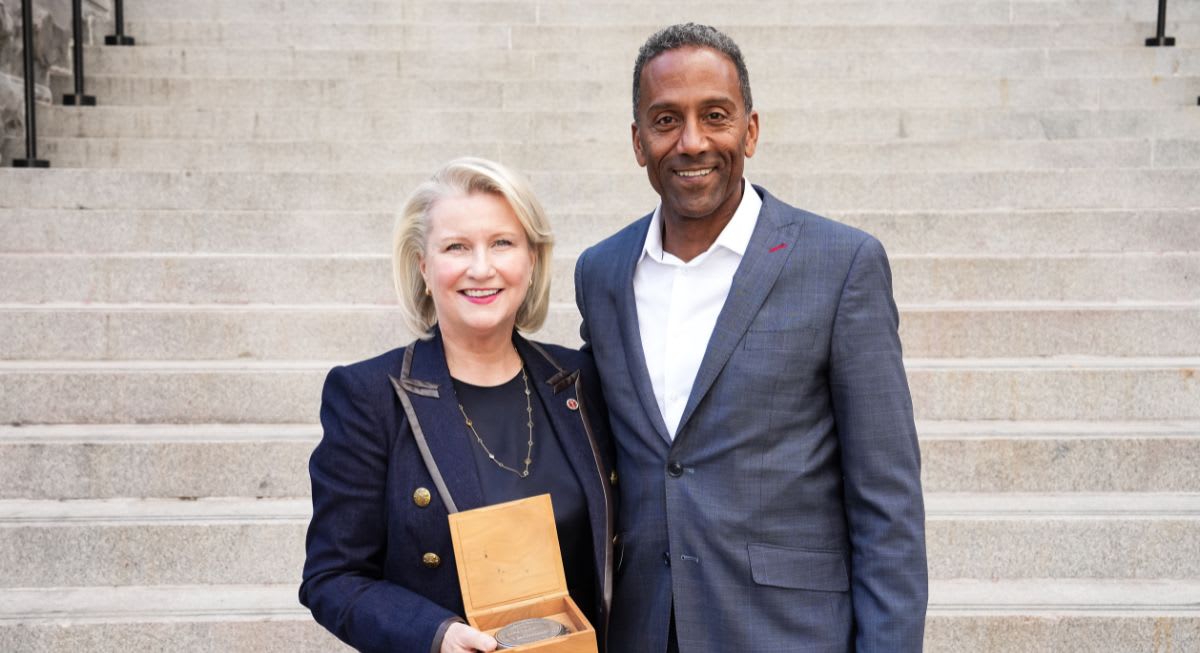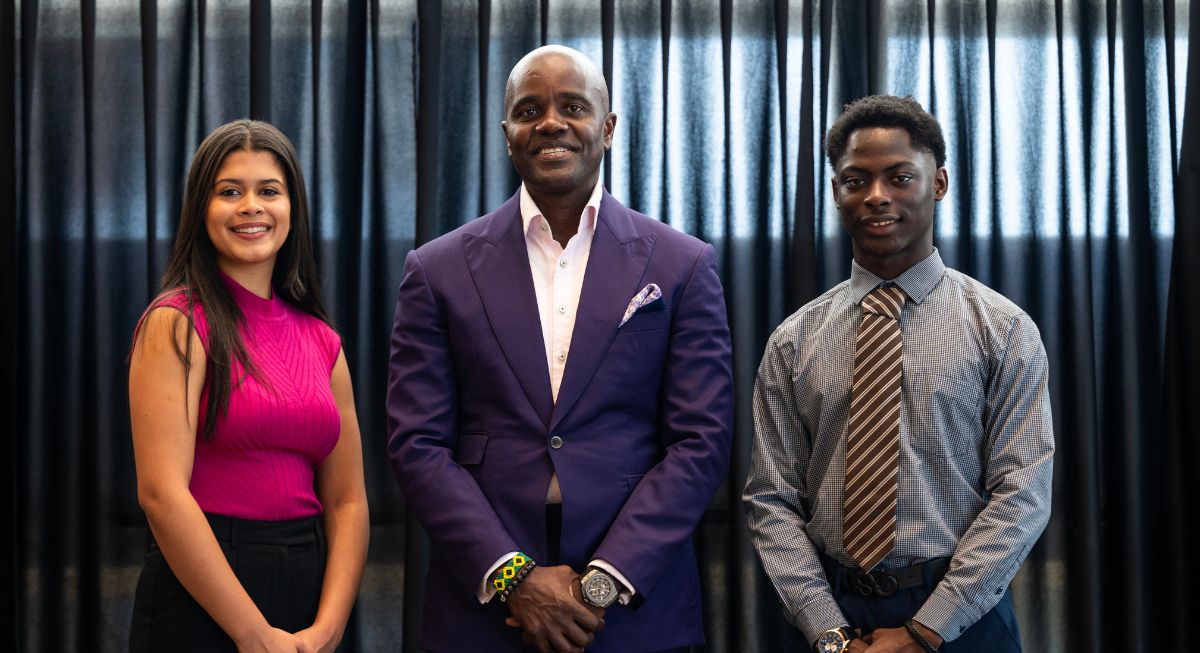Tanya Gracie is a powerhouse of governance. She is the Director of Strategy at Central1, which cooperatively empowers credit unions in Canada, and this role is intricately related to and strengthened by her governance expertise. Gracie’s other past experiences include 6 years at the Canadian Co-operative Association, almost 3 years as a Policy Lead at the Public Policy Forum and a brief stint as a Risk Analyst at the Public Health Agency of Canada.
In addition to a full-time role, Gracie gives back to the community by serving on multiple boards, including her role as a Director of the National Capital Commission (NCC) board, the incoming chair of the Youth Services Bureau of Ottawa board, and the Directors’ Forum. She previously served on the Board of Directors at Your Credit Union Limited for almost 10 years, including three years as Board Chair. Gracie is an engaged Telfer alumna, who finished her EMBA at the School in 2017.
Gracie also speaks to Telfer students about working in governance as she possesses a unique set of skills and experiences, making her an exceptional leader in this field, especially in Ottawa. A strong professional skilled in risk management and strategy, she specializes in delivering business transformation solutions and implementing positive change. For her significant work in governance and community engagement, the Telfer School of Management is proud to award Tanya Gracie with the Young Achiever of the Year Award, which we bestow upon our alumni under 40 who have achieved significant success in their careers in a short period of time.
The Power of Education
Gracie credits her professional prowess to the power of education. A lifelong learner, she first graduated from Wilfrid Laurier University with a Double Honours degree in Psychology and Global Studies. The following year, Gracie earned her Masters of Science, Community Economic Development from Southern New Hampshire University. Eight years later, she went back to school to get her EMBA from Telfer, and then completed the Institute of Corporate Directors, Director Education Program in a joint program between the Telfer and Rotman School of Management.
“I definitely have a drive for formal and informal learning. Each formal education program afforded a different aspect that was important to my career,” says Gracie in an interview. In her undergraduate program, she learned about the fit between community and organizations, combining a science degree with arts. In her Masters, Gracie gained powerful skills for project management. Then came the Executive MBA at Telfer. “It was a different scale and caliber than any of the other programs I’ve done, it fit at a perfect time,” says Gracie.
EMBA: The Missing Piece of the Puzzle
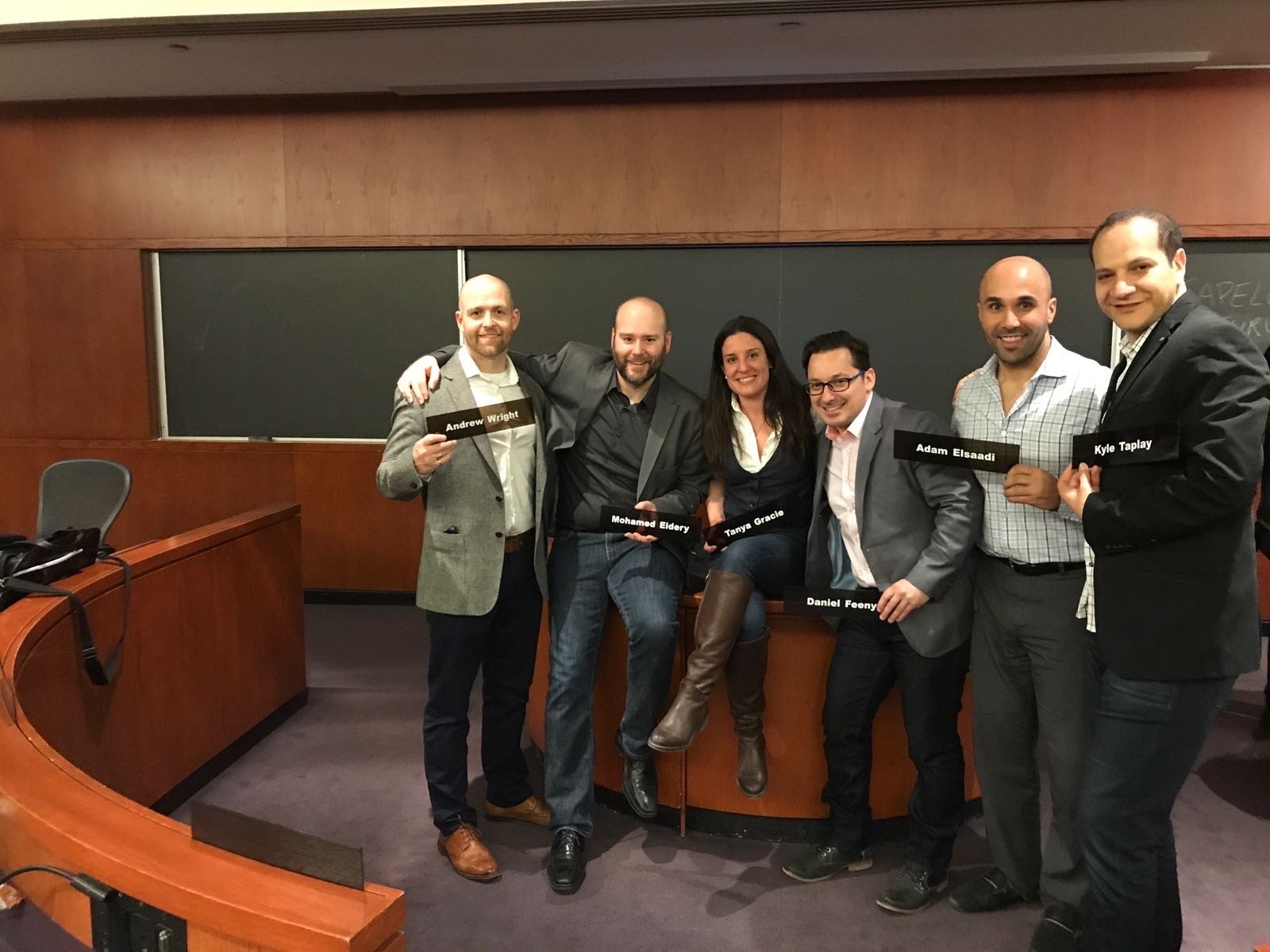
“I had been 10 years into my career when I started the EMBA program,” shares Gracie. At that point, she was working in Ottawa for the national trade association for the cooperative sector. Deeply embedded in her industry, Gracie knew how cooperative businesses work in a variety of verticals across the nation, from agriculture to financial services. Yet, the cooperative business model was not covered in the curriculum of most business schools, which failed to highlight the sector as an attractive area for work with growth opportunities and a huge variety of applications.
“It doesn’t need to be so insular,” says Gracie, “it so often gets framed that you are either in business or a co-op, but there are relevant learnings between all types of business models [for profit, not-for-profit, co-operative, etc.].” Looking to make these connections in the landscape around her, Gracie thought that maybe it was time for an MBA program to connect the dots and learn more about the business side. Looking for a program with an in-class component, Gracie found out about Telfer’s EMBA: “I went to an information session that included a panel discussion where I heard we’d be doing 6 consulting projects — that was a big selling point, having the opportunity to work directly with organizations from nonprofit to startups versus only doing theoretical case studies.” Gracie also liked the idea of the summer consulting project which graduate students can do either with their current employer or take the opportunity to explore something new.
“The whole point of the Executive MBA for me was to expand my understanding and exposure to the business community and its different facets in Ottawa,” adds Gracie. The program was a good fit with where she was at in her career. She felt like she had enough of an understanding of the business community but was also keen to learn new models and theories that were a pleasant surprise in the program. The EMBA program was the missing piece of the puzzle, saving Gracie a lot of time by exposing her to different organizations in a short amount of time: “Maybe if you move around a lot in your career you’d get such a breadth of exposure to different types of businesses.” The EMBA strengthened the traditional business skills she had acquired in the cooperative sector and complemented her governance experience. The synergy between these skills enables her to excel on “both sides of the board table”, as Gracie puts it.
But with her commitment to education, this, of course, wasn’t Tanya’s last program. After her graduation from Telfer, Gracie went back to school to complete the Institute of Corporate Directors, Director Education Program, which Telfer worked on with the Rotman School of Management. Her approach to formal education is two-fold: first, it’s an opportunity to be engaged with people in the same learning environment, with both faculty and peers in the same industry. Second, Gracie explores specific topic areas through her formal education programs and governance has always been a big part of both her professional and personal lives.
“For a very long time, I’ve been serving on boards. That came about being involved in the cooperative system: when I moved to Ottawa, I lived in a housing co-op where members are actively involved in governance.” When Gracie applied to live at the co-op, she was asked to be on its board, thanks to her work and education in the sector. Then she was on the board of a credit union in Ottawa, and this governance interest and aptitude has expanded to other organizations, including the board of the NCC, the Youth Services Board, and more… Clearly, governance is important to Gracie and the EMBA program provided an additional layer of business-specific knowledge and experience. “There was a governance course with professor Daina Mazutis and it was a great course,” adds Gracie, “I felt like there was more for me to dig into knowing that both personally and professionally, which is what led me to the Directors Education Program.” It wasn’t a grand plan to have a Master’s degree (or two, or three) but each program fits neatly with where Gracie is at in her career. Looking towards the future, Gracie is excited to keep learning: “There may be more education in my future. I’d also like to do some teaching and start to give back in that way.”
Governance: Management and Leadership through Collective Contribution
There are a few reasons why Gracie has been working in governance for 15 years. “Thanks to my exposure to it in the co-op system early in my career, I fell into governance. Even informally, I’ve always been involved in some way — in high school I participated actively in student government but I didn’t really know about the role of a board of directors until I started working,” adds Gracie.
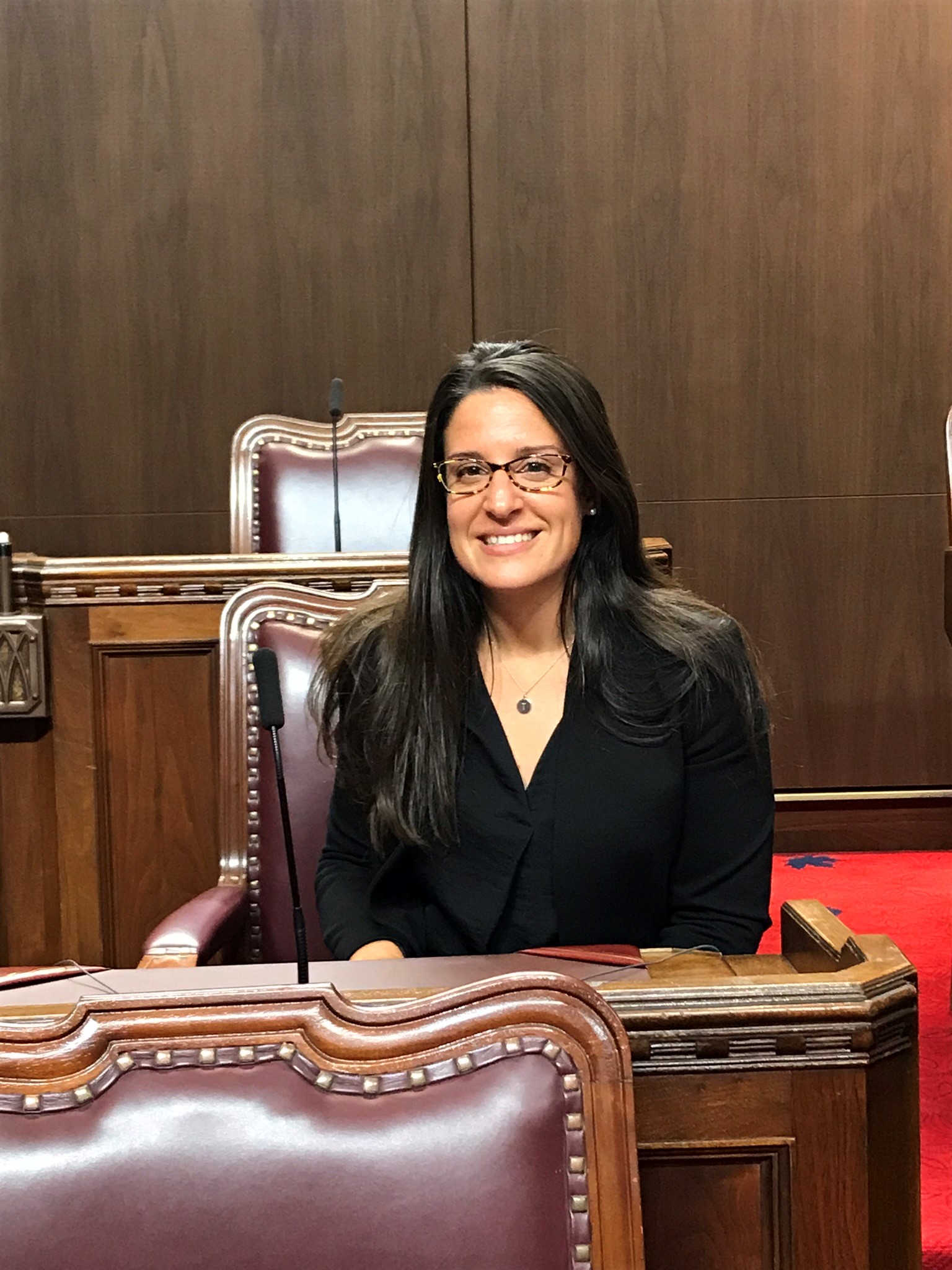
When Gracie accepted a job offer at the Canadian Co-operative Association in 2008, she moved to Ottawa, originally hailing from a small Ontario town. Throughout almost 6 years there as a Manager of Member Engagement, she learned all about various co-op businesses across the nation, working with senior leadership and board members. Gaining an invaluable understanding of exactly how a board operates, she grew to appreciate the role and responsibilities in governance and strategy. “It’s really important to have a group of people that are there to help the organization look up and out without being involved in the day-to-day,” adds Gracie. Stepping back from immediate operations, the members are a sounding board and an advisory council: “It’s so interesting you can take a group of people with different backgrounds that collectively lend experience to management so the organization can advance strategy and grow,” says Gracie.
The Key to Giving Back is Passion
On a grand scale, the sky's the limit in terms of how organizations utilize their governance approach to achieve success, inclusivity and accountability. But when it comes to individual participation and applying to be on the board of directors, Gracie’s philosophy is that you should have a vested interest in the organization and its mandate, who it’s serving, and what it aims to do. “You don’t want to be on the board if you’re not passionate about their work,” says Gracie, “Being passionate keeps me engaged. It’s a great learning opportunity, constantly, and it’s a two-way street with not only me providing opinions but being exposed to different people from various backgrounds.”
Tanya Gracie: Supporting the Local Ottawa Community

At the moment, Gracie is on three different boards. In her role as a Board Member and Chair of the Audit Committee of the NCC board, she is grateful for the “wonderful opportunity” to learn more about the National Capital Region (NCR) and be involved in the community. The NCC is both a steward and a landowner of federal lands in the Ottawa-Gatineau area. “To live in this area is very unique,” says Gracie, “We as Ottawans cross paths with NCC lands and waterways on a regular basis, whether we know it or not.” Receiving a Governor-in-Council appointment to serve on this nationally and locally critical board came to Gracie at the same time she was completing her EMBA at Telfer. “It’s incredibly rewarding and I learned a lot about NCC’s important mandate to make the capital both accessible and green, a capital Canadians can be proud of,” says Gracie. After 5 years with the crown corporation, she loves going through the NCR, knowing she had a hand in making decisions happen, calling the experience “humbling and unique.”
Another passion project for Gracie is her second board role at the Youth Services Bureau of Ottawa (YSB). This opportunity is connected to her education at Telfer — when she was completing the Directors Education Program, she met a YSB board member. One of her teammates was working there and knew Gracie was the go-to person for governance so they encouraged her to apply. The rest is history. Now working together, Gracie is passionate about supporting marginalized vulnerable youth and their families, in particular with initiatives geared towards mental health, employment services, youth justice, and housing.
While both boards do different but meaningful work, Gracie sees a common thread: “Both of these organizations have a positive impact in the community, improve accessibility, and make sure that both people and places are set up for success as the environment around us changes.”
Combining passion for giving back with taking an active approach to making change through community engagement, Gracie is enjoying her chosen career path. And her path is a unique one — Gracie is younger than a typical board member you may think of. Not many young people get involved in governance, especially when it comes to boards of larger organizations which usually comprise people seasoned in their careers. That’s why Gracie is passionate about speaking with Telfer students who may not even know this path is possible. And it’s not really the age that matters, it’s the experience. “I attribute my unique path in governance to the exposure of working in the co-op system. It gave me the opportunity to dig into this at a younger age than my peers,” adds Gracie.
Changing the Landscape for Women in Governance

The world of governance has traditionally been comprised of more seasoned professionals and very male-dominated too. “You can’t really paint the industry with one broad brush, but corporate boards are still more dominated by seasoned male professionals,” says Gracie, “There is a lot that’s being done to have more diversity and balance. Lots of research has shown the benefits of diversity, not only in age and gender but with ethnic diversity around the board table too.” Diversity and inclusion afford a difference of opinion and a board focused on equal opportunity is less likely to be siloed.
Diversifying a board of directors is not unlike the ongoing work of diversifying different types of organizations. When it comes to a crown corporation, such as the National Capital Commission, with which Gracie has been involved since 2017, things are changing too. In 2015, the federal government created a new and successful process for appointing more representative and gender-balanced individuals to boards.
From Closed Door Club to Diversity and Accountability in Governance
Publicly traded corporations still have work to do, according to Gracie, but there are organizations dedicated to bringing gender parity into even more boardrooms. “I’ve been a part of such an organization, focused on bringing women to the board and doing training like the Directors Education Program and Women Get on Board, with the overall goal of providing governance education,” says Gracie. It’s not enough to simply create resources and wait for people to come to you, especially in an environment that’s traditionally excluded specific groups. Leveraging her own unique path and broad experience, Gracie is actively working to ensure diverse people take these programs and are aware of the opportunities available to them.
Observing the world of governance for the last couple of decades, Gracie notes that the whole industry has become much more professionalized over time. “What used to be the closed-door club where it only mattered who you knew, and the idea that the boards were only there to rubber stamp things, that era is over and things have changed,” says Tanya. With the rise of the internet and social media, and the increased attention to ESG elements, consumers and shareholders are interested in transparency. “Everybody is keen to know what an organization is doing, how they are treating their employees and the environment, how personal data is used, in addition to how much money they make,” shares Gracie. An organization’s strategy and operations need to reflect these aspects and overall, the board has more responsibility and accountability than ever before.
Women in Leadership: Tanya Gracie’s Life Lessons
Achieving inspiring success in her career and earning the Young Achiever Award for her acumen and tenacity this year, Tanya Gracie has a few words of advice for current Telfer students: “Say ‘yes’ to as many things as you can. Challenge yourself to not just follow prescribed steps and get involved in one thing outside of your job of being a student.” This exact philosophy got Tanya to where she is now. Not knowing anything about the co-op sector when she was in university, she took a summer job at an agricultural co-op and said yes to working in the office where she got her first glimpse at a cooperative model. This one “yes” had a significant impact on her career since then. “When you’re a student, it’s a great time to try new things, whether it’s a student club or a co-op term. It’s served me well!” encourages Gracie.
We can’t wait to see how much more ground Gracie will break in her career in the following decades. We are proud to call Tanya an alumna of the School and our Young Achiever of the Year.
